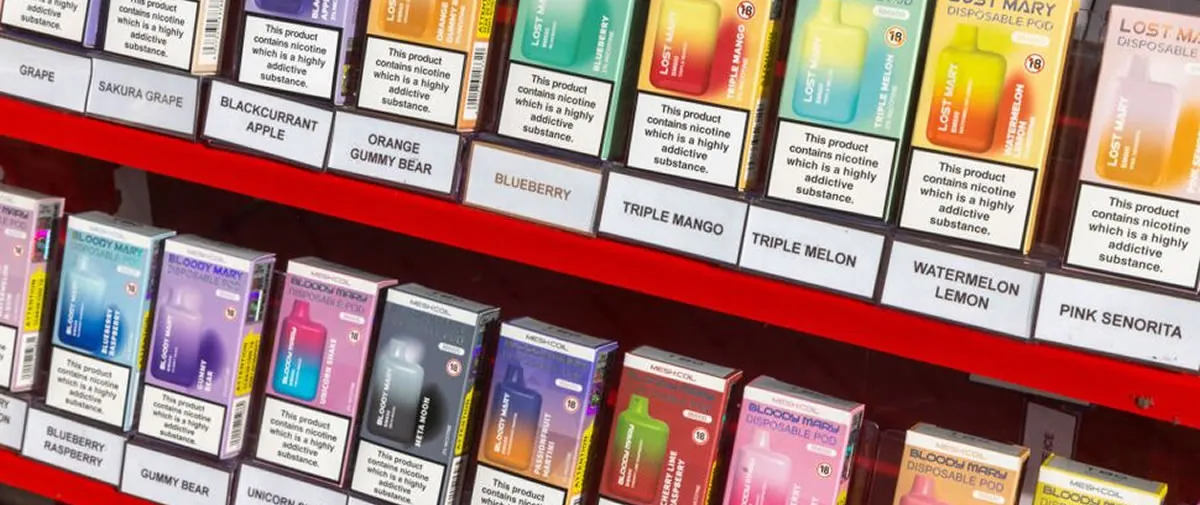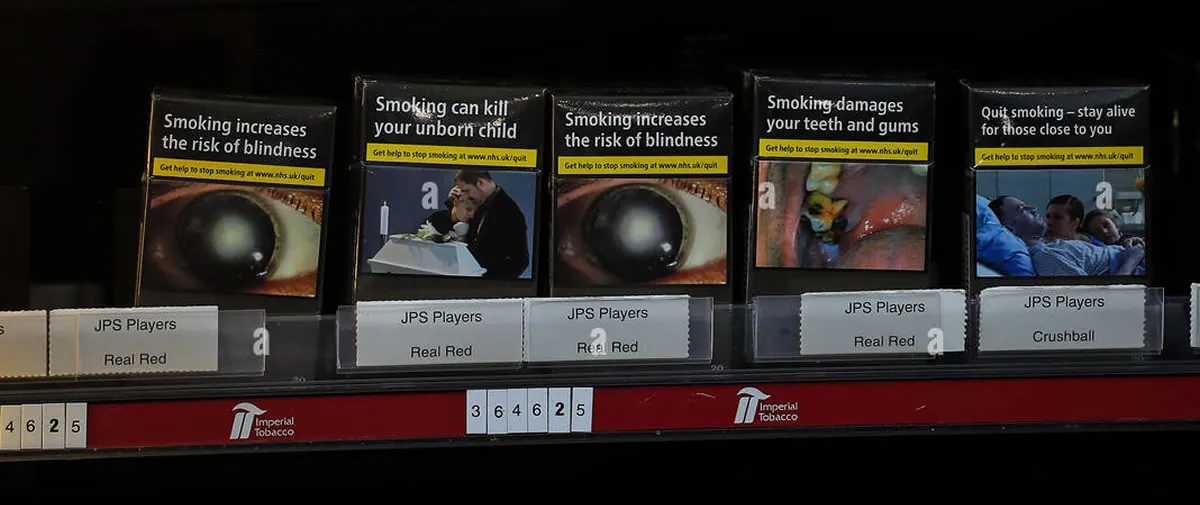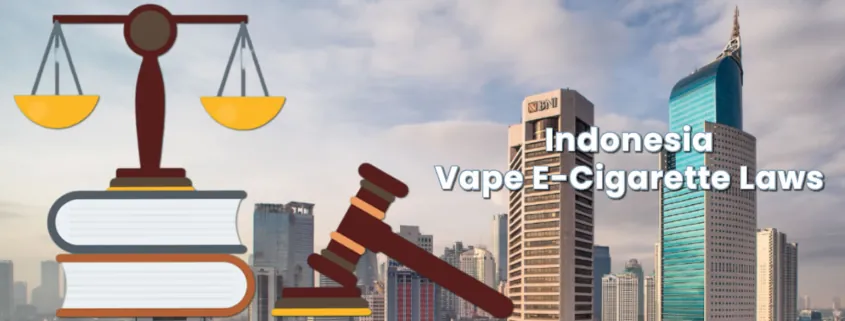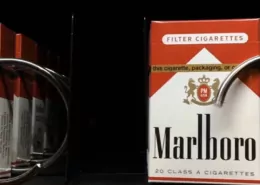Indonesia Vape E-Cigarette Laws
Indonesia, long recognized as one of the world’s largest tobacco markets with a deep-rooted smoking culture, has recently passed a sweeping new law aimed at curbing the consumption of tobacco products and reducing smoking-related health risks. The law introduces stringent restrictions on the sale, marketing, and packaging of both traditional cigarettes and e-cigarettes, marking a significant shift in the country’s approach to tobacco regulation.
According to the World Health Organization (WHO), while the global rate of tobacco use among individuals aged 15 and older is on the decline, Indonesia stands out as one of only six countries where tobacco consumption is projected to rise—from 33.2% in 2010 to 38.7% by 2030. The new law seeks to address this troubling trend by implementing a range of measures designed to reduce the appeal and accessibility of tobacco products.
Key Provisions of the Vape Law in Indonesia
Marketing Restrictions
The law tightens marketing regulations for tobacco products, prohibiting all forms of tobacco advertising across all media platforms, including television, radio, print, and digital. This ban extends to both direct advertising and indirect marketing strategies such as product placement, sponsorships, and promotional events. The law also prohibits the use of celebrities, influencers, or any public figures in tobacco-related promotions, aiming to reduce the appeal of smoking to younger audiences.
Point-of-sale advertising, a common practice in Indonesia, is now severely restricted. Retailers cannot display cigarette brands or logos in a way that makes them visible to consumers, and promotional materials such as posters, banners, and discount offers are strictly forbidden.

Packaging Regulations
The new law introduces rigorous packaging regulations, requiring cigarette packs to carry graphic health warnings that cover 85% of the packaging surface, up from the previous requirement of 40%. These warnings include images of smoking-related diseases and blunt messages about the health risks associated with tobacco use. The law also mandates plain packaging for all tobacco products.
For e-cigarettes, the law requires packaging to carry similar health warnings, with specific emphasis on the risks of nicotine addiction and potential harm from inhaling vaporized substances. The packaging of e-cigarettes must also be plain, with no branding or promotional elements allowed.

Sales Regulations
The new law imposes stricter controls on the sale of cigarettes and e-cigarettes. The sale of tobacco products is banned within 500 meters of schools, playgrounds, and other locations where children are likely to be present, aiming to prevent easy access to cigarettes for minors and reduce the visibility of tobacco products in areas frequented by young people.
The sale of single cigarettes, a widespread practice in Indonesia, is now prohibited. Retailers must sell cigarettes only in full packs, with the goal of reducing the affordability and accessibility of tobacco products, particularly for low-income individuals and young people who may be more inclined to purchase single sticks.
For e-cigarettes, the law sets an age limit of 21 years for purchasing and using these products, higher than the age limit for traditional cigarettes, which is set at 18 years.

Online Sales and Distribution Regulations
The new law targets the online sale and distribution of tobacco products, prohibiting the sale of cigarettes and e-cigarettes through online platforms, including e-commerce websites, social media, and mobile apps.
The law mandates strict controls on the distribution of tobacco products. All distributors must be licensed and are required to keep detailed records of their sales and distribution activities, which must be made available for government inspection. This measure aims to ensure that tobacco products are not being sold or distributed to unauthorized individuals or outlets.
Penalties for Online Sales of E-Cigarettes
Under Indonesia’s new tobacco control regulations, particularly Government Regulation No. 28/2024, selling e-cigarettes online is strictly prohibited. Violators may face administrative sanctions, which could include fines or other penalties determined by the regulatory authorities.
If an entity is found selling e-cigarettes online, the Minister of Communication and Information Technology can block access to electronic information or documents related to such sales based on recommendations from the Minister of Health. Violations of public health laws in Indonesia can sometimes lead to criminal prosecution, depending on the severity and nature of the offense.
The prohibition on online sales aims to prevent minors from easily accessing e-cigarettes and curb the growing popularity of vaping among youth. The Indonesian government has emphasized strict enforcement of these regulations to ensure compliance and reduce tobacco consumption rates in the country.
Vaping Tax in Indonesia
Indonesia will introduce a new 10% tax on e-cigarettes starting January 1, 2024, in addition to the existing 57% excise tax on e-cigarette liquids implemented in 2018. The government aims to regulate tobacco products and curb the growing vaping trend by aligning the taxation of e-cigarettes with traditional cigarettes.
The Indonesian government plans to allocate 50% of the revenue generated from this tax to public health initiatives and tobacco control law enforcement. Furthermore, the government intends to increase excise tariffs on e-cigarettes by an average of 15% in 2024, which will further impact consumers and businesses in the vaping industry.
Dissenting Voices and Government Response
The introduction of these stringent regulations has faced strong opposition from various stakeholders, including the tobacco industry, small retailers, and certain consumer groups.
Major tobacco companies argued that the law will have a devastating impact on their business, leading to significant job losses and economic downturns in regions heavily dependent on tobacco production. They challenged the effectiveness of plain packaging requirements, claiming that they infringe on intellectual property rights and do little to reduce smoking rates. The industry also criticized the ban on advertising and point-of-sale promotions, arguing that these restrictions stifle competition and prevent consumers from making informed choices.
Small retailers expressed concern about the impact of the new law on their businesses, particularly the restrictions on advertising, point-of-sale promotions, and the sale of single cigarettes. They raised concerns about the enforcement of the new regulations, particularly in rural areas where government oversight may be less stringent, and argued that the law could lead to increased opportunities for corruption and extortion.
Some consumer groups pushed back against the new law, particularly the restrictions on e-cigarettes. Vaping advocates argued that e-cigarettes are a less harmful alternative to traditional smoking and that the new regulations unfairly target these products, potentially driving users back to smoking combustible cigarettes. They also criticized the higher age limit for e-cigarette use, arguing that it unjustly restricts access for younger adults who may be using e-cigarettes as a smoking cessation tool.
Despite the resistance, the Indonesian government defended the new law as a necessary step to protect public health, citing the high smoking rates in the country and the growing popularity of e-cigarettes among young people. Government officials pointed to the alleged success of similar regulations in other countries, such as Australia and the UK, where smoking rates declined following the introduction of plain packaging and stricter marketing controls.
The government announced plans to provide support for small businesses affected by the new regulations, including financial assistance for retailers transitioning away from tobacco sales and training programs to help tobacco farmers diversify into alternative crops. They also committed to stepping up enforcement of the new regulations, particularly in rural areas and in the online marketplace, pledging to work closely with law enforcement agencies to crack down on the illegal tobacco trade and ensure that the new regulations are implemented fairly and effectively.
- Bestselling Vapes in UK After Disposable Ban: What to Stock 2025 - August 8, 2025
- Argentina Debates Stricter Vape Laws Amid Prohibition Failures - August 8, 2025
- Nigeria Advocacy Group Urged to Hike Tobacco & Vape Tax by 100% - August 8, 2025








